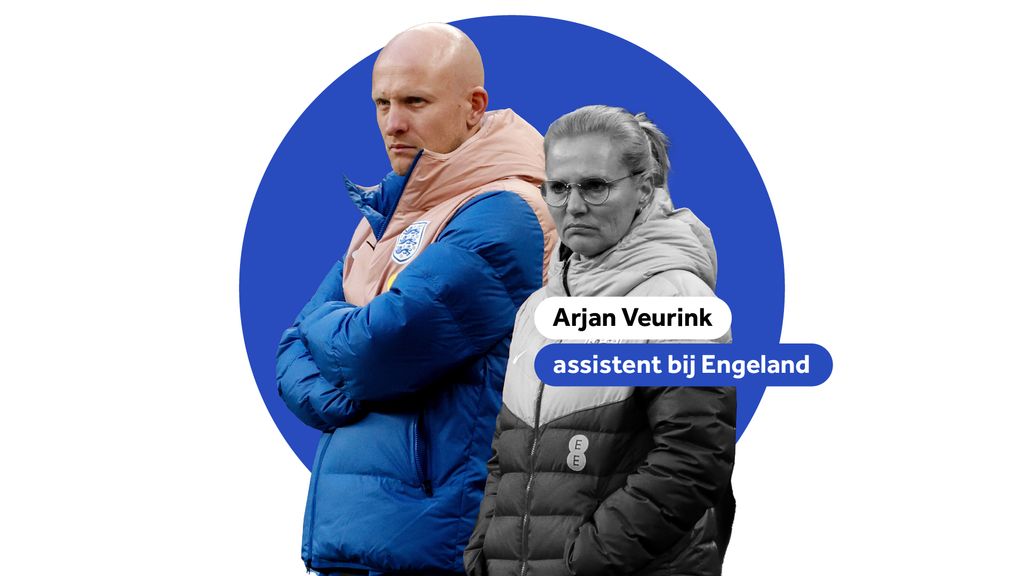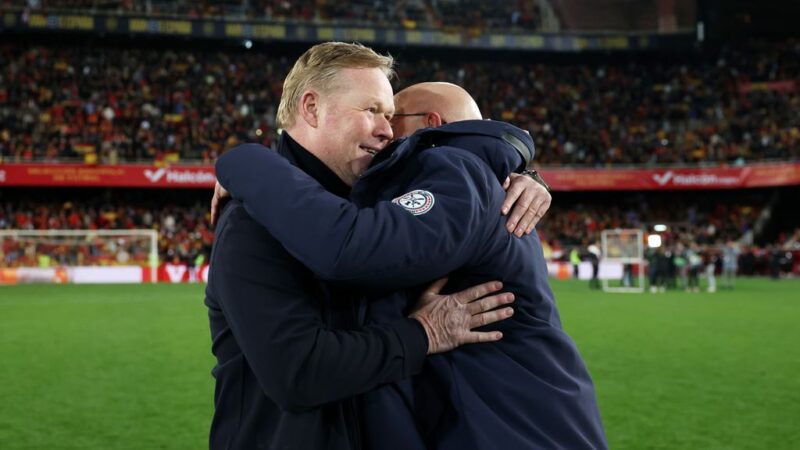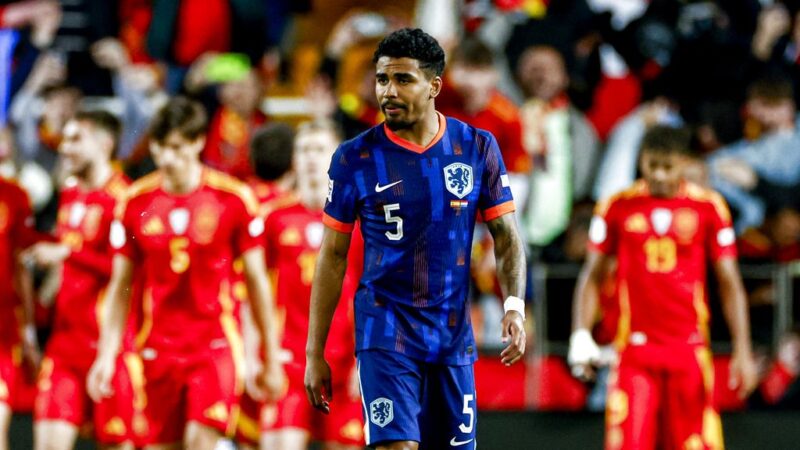‘European Championship title with England confirmed that what Sarina and I are doing is successful’

NOS Football–
-
Eline de Zeeuw
reporter NOS Sports
-
Eline de Zeeuw
reporter NOS Sports
July 31, 2022. At a packed Wembley, Chloe Kelly shoots the winning goal deep in the extension of the final: 2-1, the match is decided. The English women become European champions, national coach Sarina Wiegman and her assistant Arjan Veurink write soccer history.
They stand cheering along the line, hugging each other in disbelief on the field. Moments later, Veurink looks around with tears in his eyes. “I just had to cry. I had to do a lot and leave a lot for it. Actually, everything came out in that moment.”
“It was also the realization that what we had accomplished in the Netherlands, winning the European Championship and making it to the World Cup finals, that that was not just luck. This was the ultimate confirmation that what the two of us are doing is successful. That we became European champions again in another country, with another culture and on such short notice, yes, that really touched me. It all came together there at Wembley.”
Inseparable
Back to 2017 for a moment. Veurink had just quit after almost five years as head coach of FC Twente women, when Sarina Wiegman called him and asked to become her assistant with the Oranje. He took the gamble, because really they only knew each other from the sidelines. But that gamble, we now know, worked out very well.
That same year they became European champions with the Dutch women, and in 2021 he decided to follow Wiegman to England. Same mission, same result. “When we won the European Championship, people said to me: Arjan, you may be able to imagine what this title means to our soccer culture, but you’ll never fully understand it. That’s how deep it looks.”
Meanwhile, “assistant to” doesn’t quite cover the load anymore. Wiegman and Veurink are perhaps more of an inseparable duo. Although Veurink says, “That had to grow. In the first two years we did really have moments when we sparred with each other about our collaboration and how we could shape it even better.”
“In the beginning, for example, Sarina found it harder to hand things off and delegate. That’s a night and day difference from how things are now. Now she literally says: ‘Arjan, you together with the technical staff make sure that all the soccer talks we have are translated to the training pitch.’ By now I can really say that we are on the same page. It creates peace of mind.”
At home in Twente, work in England
Veurink tells it leisurely from behind the kitchen table. He is now briefly at home in Borne, where he lives with his wife and three children. But usually he is on the road at least half the week.
On Sundays Veurink takes the train to Schiphol Airport and flies to England to visit the internationals at their clubs: one time he watches Manchester City or Chelsea, the next Sunday he sits in the stands at West Ham United or Arsenal.
He then selects footage of the players, analyzes it and every Tuesday he and Wiegman meet – the boss – and the rest of the staff for discussions. “With a national team, of course you live from international period to international period. Because you don’t have much time then, in the preparation you are already constantly working to arrange that time as well as possible. It has to be, as the English say, spot on are.”
And there is plenty of investment in that, too. At St. George’s Park, the “Zeist” of England, Wiegman has a team of “26 to 27 specialists” around him who are dedicated solely to the Lionesses engaged.
A few years ago, the English Football Association FA deliberately chose to set up the women’s branch in the same way as the men’s branch: for every position there is in men’s soccer, there is also a specialist with the women. “The big advantage I see from that is that it allows you to make very many and very fast steps. Certainly in the world of women’s soccer, I don’t think there are many places where things are better organized at the moment than here.”
At the same time, that creates expectations. Whereas he and Wiegman were able to do their jobs fairly casually in their early days at Orange, in England the pressure was on from the start. It is not the only difference from their time in Holland.
Managers often get relatively little feedback. I do mention it when things are not going well.
“I noticed that players in the Netherlands came to me a little easier. As an assistant I could be an important bridge towards Sarina. Here you notice that building that relationship does take a bit more time: they sometimes step earlier to the staff members who also come from England, for example.”
One thing has never changed in recent years: the way in which Veurink, as assistant, tries to be “a mirror and sounding board” for Wiegman. “What you often see is that people who lead or are high up in the hierarchy get relatively little feedback. It’s quite a step is. I think for Sarina, I am someone who speaks up and is honest and names it when things don’t go well. That, too, is being loyal.”
Hood
In just under two months, the two will begin their next test: the World Cup in Australia and New Zealand. How long the success duo Wiegman-Veurink will remain inseparable after that, Veurink leaves in the middle.
He does not rule out ever wanting to make the step to head coach again. “But that does not take away from the fact that I am having a very good time now and get a lot of energy from working with Sarina.”
What’s more, he now knows better than anyone else what’s involved as a manager in the most football-mad country in the world. “I walk calmly through the stadium and down the street, but not Sarina. She has to wear her hoodie,” he laughs. “Yes, that too is nice about the role of assistant.”





